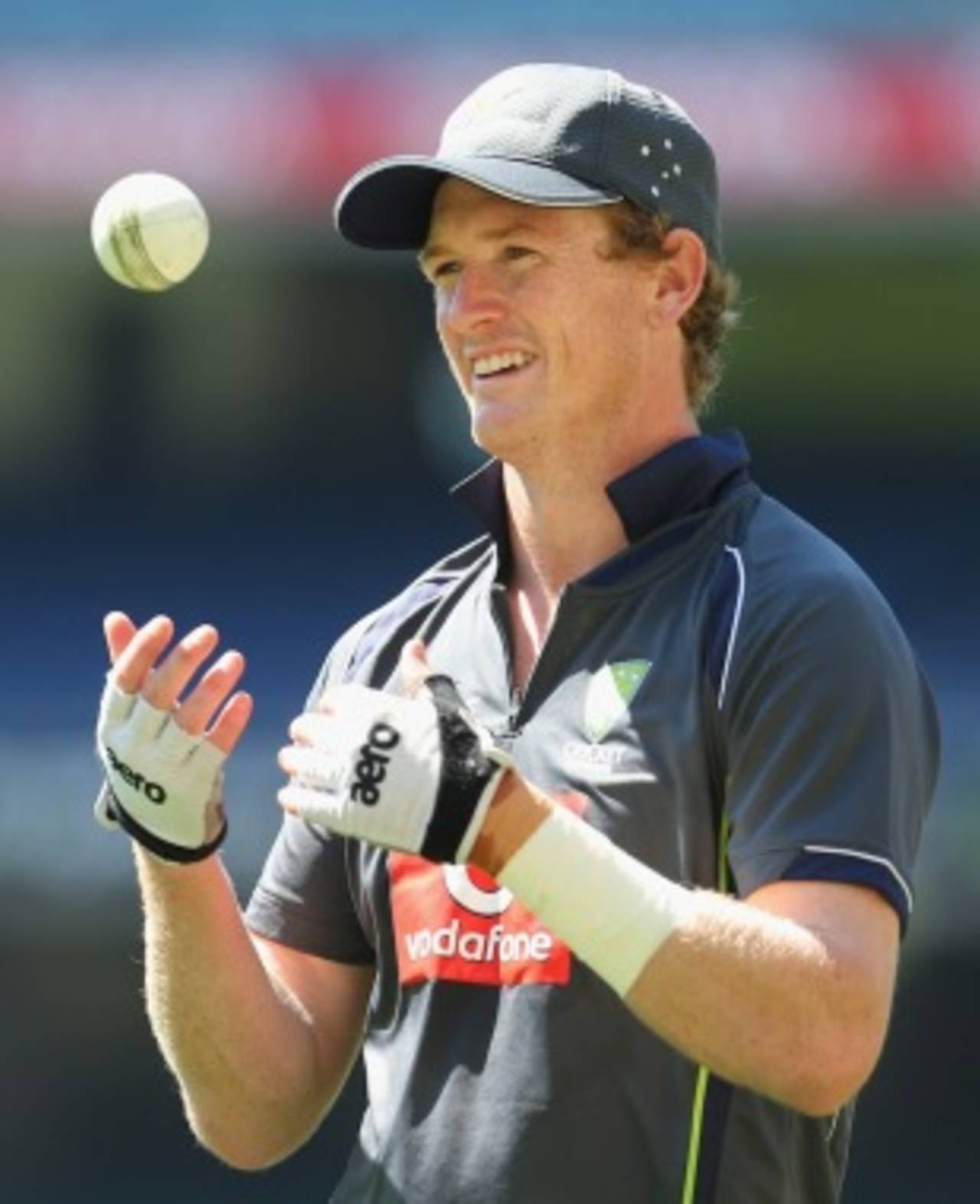Rotation's a jolly good thing (mostly)
If it's good enough for shirts, friends and duvets, why not for cricket?
Andrew Hughes
Feb 25, 2013, 11:38 PM

George Bailey: won't go soggy if you dip him in a cup of tea • Getty Images
Where would we be without rotation? Cars wouldn't be much fun, for a start. That trick that jugglers do with the spinning plates would be a lot less impressive. Hamsters would have more free time, which they would undoubtedly use to plot the overthrow of humanity.
So on the whole, rotation is a good thing. And it's something you can introduce into your daily lives. Instead of wearing the same pair of shoes until the soles flap when you walk, get yourself a development wardrobe of up-and-coming footwear, and then give some of them an occasional one-day outing, so that when the time comes for them to step up, they'll be ready. You'll find that rotation also works for shirts, friends, duvets and arable crops.
It can sometimes go wrong. Henry VIII's attempt to introduce a rotation system for the Royal Bedchamber failed because the pool from which he was selecting (unmarried women in Western Europe) was wide enough to render a rotation policy more or less superfluous.
And it doesn't always work in cricket, either. Last summer, England found that resting their good bowlers and replacing them with bowlers who were not so good resulted in a bowling performance that was not as good as it would have been had they picked their good bowlers.
That didn't go down well with the public, and neither did Australia's recent tactic of giving success a bit of a rest for the series with Sri Lanka. This week, a spokesperson from Cricket Australia's Philosophy Department explained their thinking:
"Ah look, imagine you've bought a packet of chocolate biscuits, the really expensive ones, with the extra thick chocolate on one side. If you eat them all as soon as you get home from the shop, what happens? You feel a bit sick and your family hate you. More importantly, you've got no chocolate biscuits to give to your wife's mother when she comes round for tea the next day. You'll have to break out the custard creams. And she hates custard creams.
"Well, success is like chocolate biscuits. You have to make it last. We've been hitting the success pretty hard in the last few months, and if we carry on like that, there'll be none left for the Ashes and we won't want our dinner."
He went on to clarify that he wasn't specifically comparing George Bailey to a custard cream. Cricket Australia have every faith in George's leadership ability, and they are confident that, if dipped into a mug of tea, George will not go soggy, but will retain his flavour as well as any digestive in the modern game. Instead, the spokesperson blamed the packed fixture list for Australia's enforced success-rotation policy.
"Ah look, there's too many matches. I coloured in the fixtures on my Shane Warne Estee Lauder calendar and I hung it in my office, next to that print of Her Majesty the Queen meeting John Howard's pet piranha. I look at that calendar every day, but some mornings I just shake my head and ask myself, 'Which galah keeps signing up for all these fixtures? And how does Shane manage to look so radiant whilst leading a hectic modern lifestyle?'"
Andrew Hughes is a writer currently based in England